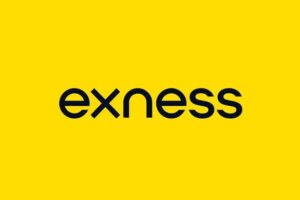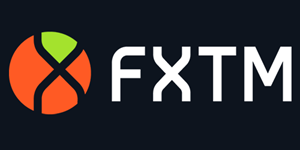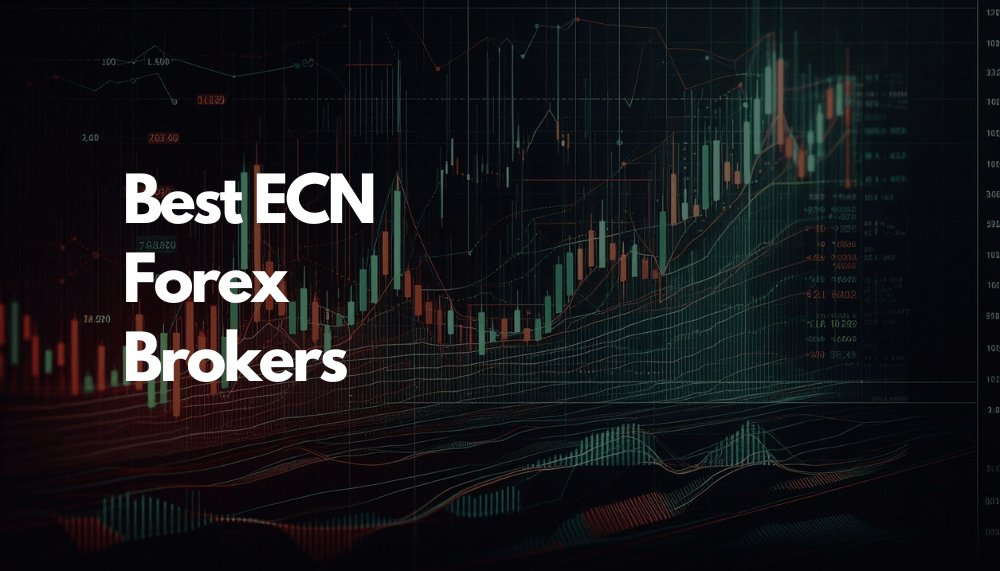If you want to upgrade your trading level in 2026, then you have come to the right place. Choosing the best ECN forex broker can significantly enhance your trading experience. The global forex market is expanding every day, making it crucial to connect with top brokers that offer Electronic Communication Network (ECN) services to minimize costs and maximize profits.
In this article, we will explore the 6 best ECN Brokers for 2026, analyzing their fees, features, advantages, and more to assist you in selecting the ideal broker for your needs. Let’s dive in and discover which broker could become your ultimate trading ally this year.
ECN Trading: What it is and its Significance?
ECN trading, which stands for Electronic Communication Network trading, enables traders to directly engage with financial markets. This system connects them with entities like banks, hedge funds, and individual traders, eliminating the need for brokers to serve as middlemen. Unlike traditional trading methods, ECN brokers offer a clear platform where buyers and sellers can directly interact.
ECN trading has several advantages. It ensures greater transparency because all participants have access to identical pricing information, which helps prevent price manipulation. Typically, top ECN forex brokers provide better pricing and lower spreads, especially during periods of high trading activity. They also avoid trading against their clients, which minimizes conflicts of interest.
Furthermore, traders enjoy increased flexibility, as they can conduct trades outside of regular market hours, a significant benefit of ECN forex brokers.
Despite these benefits, there are some drawbacks to using ECN brokers. They often impose higher commission fees due to the direct market access they offer. The platforms can be more intricate, requiring a strong understanding of technical analysis and market behaviour. Additionally, slippage can be an issue, where the expected trade price differs from the actual price during times of high market volatility, impacting the profitability of trades.
How to Select the Best ECN Forex Broker?
Choosing the right ECN broker in forex for your trading experience requires careful consideration of several important factors to ensure a rewarding and effective journey. Key aspects to assess include spreads, trading costs, platform capabilities, and execution speed.
Look for brokers that provide low commissions and narrow spreads, as these costs can significantly impact your earnings. The trading platform must be intuitive and packed with features, providing users with advanced charting capabilities, technical analysis tools, and access to real-time data. Additionally, a platform that supports mobile trading is advantageous, enabling you to handle trades conveniently from your mobile device.
When selecting an ECN forex broker, it is essential to consider the aspects of regulation and security. Regulatory bodies like the FCA, ASIC, or CySEC enforce strict rules, such as keeping your money separate from the broker’s, which safeguards your investments from any business problems the broker might face. Additionally, look into the broker’s data protection and anti-fraud policies to ensure your trading environment remains secure.
Another aspect to take into account is the variety of assets accessible for ECN trading. Top ECN brokers offer entry to a wide selection of markets, such as Forex, commodities, indices, and cryptocurrencies. This variety enables you to incorporate diversity into your trading strategies and take advantage of differing market conditions. Furthermore, select brokers that offer significant liquidity from various financial institutions, guaranteeing prompt and dependable trade execution, even during periods of high market volatility.
Top 6 ECN Forex Brokers in the World
1. Exness

Exness is a prominent global ECN broker established in 2008 and recognized for its extensive selection of trading instruments, which includes more than 120 currency pairs, stocks, cryptocurrencies, and commodities. The broker is overseen by several financial regulatory bodies, including CySEC and the FCA, ensuring a safe and trustworthy trading atmosphere.
Exness provides traders with flexible leverage options that can reach up to 1:2000, along with the convenience of instant withdrawals.
Pros and Cons of Exness
Pros:
- Significant leverage
- Immediate withdrawals,
- Narrow spreads
Cons:
- Significant leverage heightens the risk
- Restricted research tools
Exness Commissions and Fees
Exness mainly functions with narrow spreads that may be as low as 0. 0 pips on specific accounts. Most account categories do not incur commissions, but the Raw Spread account does impose commissions beginning at $3. 50 per side per lot. The broker does not impose fees for deposits or withdrawals, increasing its attractiveness for budget-minded traders.
Also Read: Exness Broker Review: Is This the Right Broker for You?
2. IC Markets

IC Markets, one of the best forex brokers in the world, was introduced in 2007. It is famous for providing a true ECN (Electronic Communication Network) trading environment, where trading costs are very low, starting at 0.0 pips. This broker gives you access to a broad range of financial products, including Forex, indices, commodities, cryptocurrencies, and stocks.
People rate IC Markets as a top ECN broker for its fast trading speeds and minimal delays, making it a reliable choice. It is regulated by respected authorities like ASIC, CySEC, and the FSA, ensuring safety and transparency in trading.
Pros and Cons of IC Markets
Pros:
- This service provides affordable options with narrow spreads, indicating that the gap between the buying and selling prices is minimal, thereby lowering expenses.
- Ensures fast execution of trades, allowing you to make quick decisions with minimal delay.
- No fees if your account is inactive, which is beneficial if you take breaks from trading.
Cons:
- Offers a limited range of educational resources, which might be a drawback if you’re looking to learn more about trading.
- Charges higher fees for international bank transfers, which can add up if you frequently move money across borders.
IC Markets Commissions and Fees
IC Markets offers a variety of account types, including Standard, Raw Spread, and cTrader accounts. If you choose Raw Spread or cTrader accounts, there is a commission charge of $3.50 per lot per side, and spreads can be as low as 0.0 pips.
The Standard account offers slightly higher spreads but does not charge any commission fees. Deposits and withdrawals are generally free, except if you use international bank transfers, which come with a $20 fee.
3. Admiral Markets

Admiral Markets, commonly referred to as Admirals is a reputable ECN forex broker that has been serving traders since 2001. This broker provides a wide variety of financial instruments, such as Forex, commodities, indices, stocks, and cryptocurrencies, accessible through the MetaTrader 4 and MetaTrader 5 platforms.
With regulation from the FCA in the UK and CySEC in Cyprus, Admirals guarantees a safe trading environment, complemented by outstanding customer support and a comprehensive selection of educational resources.
Admiral Markets: Pros and Cons
Pros:
- Strong Regulation: Admiral Markets is regulated by financial authorities, which helps ensure your money is safe and trading practices are fair.
- Educational Resources: The platform provides a variety of learning tools such as videos, articles, webinars, and tutorials to help traders enhance their skills.
- Variety of Account Options: There are different account types available, allowing traders to pick one that suits their level of experience and trading style.
Cons:
- Swap Fees for Overnight Trades: If you keep trades open overnight, you will incur swap fees, which can add up over time.
- Limited Platform Choices: The selection of trading platforms is limited, which might not satisfy traders who want more options in their trading tools.
Commissions and Fees at Admiral Markets
Admiral Markets offers several account options. The Zero MT4 account entails a commission fee that varies between $1.8 and $3.0 for each lot traded in the forex and metals markets. Swap fees apply to positions held overnight. They also offer an Islamic trading account that eliminates swap fees but includes an administrative fee, catering to traders with specific financial requirements.
Also Read: Admiral Markets Review: Is it Safe to Use?
4. Pepperstone

Pepperstone is a prominent ECN broker that started in 2010, recognized for its dependable trading services and competitive pricing. You can trade in areas like foreign currencies (Forex), raw materials (commodities), stock market averages (indices), and digital currencies (cryptocurrencies).
This is a regulated ECN forex broker has regulations from authorities like the FCA and ASIC, Pepperstone provides a secure trading environment using platforms such as MetaTrader 4, MetaTrader 5, and cTrader.
Pros and Cons of Pepperstone
Pros:
- Offers competitive pricing
- Provides multiple platform options
- Strong regulatory oversight
Cons:
- Charges inactivity fee after six months
- No guaranteed stop-loss orders
Pepperstone Fees and Commissions
Pepperstone features two main account types: Razor and Standard. The Razor account features spreads that begin at 0.0 pips, along with a commission fee of $3.50 for each lot side. In contrast, the Standard account has wider spreads but does not charge commissions. There are no fees for deposits or most withdrawals, but a $15 inactivity fee is charged after six months of inactivity.
Also Read: Pepperstone Review: Trading Costs, Regulation, Fees, etc.
5. FXTM (ForexTime)

FXTM, short for ForexTime, is a well-regarded broker that started in 2011. It provides trading options in Forex, commodities, indices, and cryptocurrencies. The broker is under the regulation of the FCA (UK), CySEC (Cyprus), and FSCA (South Africa), which means your funds are well-protected.
FXTM is favoured for its user-friendly platform and wealth of educational materials, catering to both newcomers and seasoned traders.
Pros and Cons of FXTM
Pros:
- A wide range of educational resources.
- Tight spreads that can reduce trading costs.
- Oversight by multiple regulatory bodies, enhancing security.
Cons:
- In case your account remains inactive for six months, you have to pay $5.
- Offers fewer trading assets compared to some other brokers.
FXTM Commissions and Fees
FXTM gives several account types with unique fee structures. The ECN account features tight spreads starting at 0.1 pips, with a $4 commission per trade. Standard accounts do not charge a commission but have slightly wider spreads.
6. Tickmill
Tickmill is a world-renowned ECN broker founded in 2014, providing a cost-effective trading environment with access to Forex, stocks, indices, commodities, and bonds. The broker is overseen by credible authorities, including the FCA (UK), CySEC (Cyprus), and FSA (Seychelles), guaranteeing a safe and trustworthy trading experience.
Tickmill’s narrow spreads and rapid execution speeds render it a favoured option for both novice and experienced traders.
Pros and Cons of Tickmill
Pros:
- Narrow spreads
- Rapid execution
- Robust regulatory framework
Cons:
- Restricted selection of trading instruments
- Dormancy fees
Tickmill Commissions and Fees
The Classic account incurs no commissions, with costs incorporated in the spreads beginning at 1. 6 pips. The Pro and VIP account alternatives provide spreads that start from 0.0 pips. In the Pro accounts, the commission is $2 for each side per lot, VIP accounts are subject to a reduced commission rate of $1 for each side per lot.
Also Read: Tickmill Broker Review: Low Spreads, Fast Execution & Regulation
Tips for New ECN Traders: How to Get Started
For novice ECN traders, understanding fundamental concepts such as Electronic Communication Networks (ECN), various order types, and the nature of spreads is crucial. ECN brokers facilitate direct access to the interbank market, promoting transparent trading practices with fluctuating spreads.
Implementing fruitful risk management techniques is vital from the outset. Employ stop-loss orders to mitigate potential losses and steer clear of excessive leverage, which can quickly deplete your trading capital. Utilizing a demo account is an excellent way to practice and become accustomed to the platform and market dynamics.
Begin with smaller trades to grasp how the market functions. Additionally, developing a trading plan tailored to your financial objectives and risk appetite is beneficial. As you progress and refine your strategies, you can gradually increase your trade sizes, gaining confidence and experience in the ECN trading landscape.
Conclusion
Selecting the best ECN forex broker is crucial for achieving success in your trading endeavours. The leading six ECN brokers are evaluated based on important factors such as spreads, fees, platform capabilities, regulatory compliance, and the quality of customer service.
Notable names like Pepperstone, IC Markets, Tickmill, Exness, and FXTM have distinguished themselves through their attractive spreads, strong regulatory frameworks, and dependable trading platforms. These brokers accommodate a variety of trading approaches, granting access to diverse financial markets, including forex, stocks, and cryptocurrencies.
When choosing an ECN broker, it’s essential to take into account aspects such as regulatory status, fee arrangements, available trading tools, and the level of customer support provided. An ideal broker should create a transparent and secure trading atmosphere that aligns with your trading goals, ensuring a seamless and efficient trading experience.

